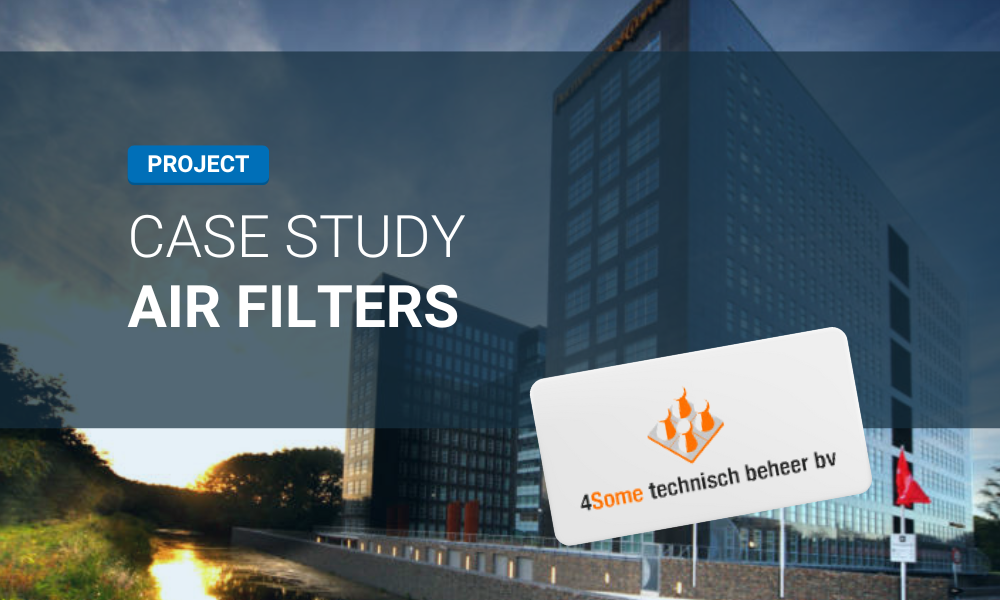Safe and clean air management at PWC
4Some Technical Management is a specialist in the management and maintenance of technical, building-related installations. The company does this on behalf of ISS Facility Services at the PwC Netherlands buildings in Amsterdam: Westgate I and Westgate II. Also at PwC, or the accounting and tax advisory company PricewaterhouseCoopers, optimizing air quality is an important item on the agenda. How does it offer its employees, customers and suppliers optimal protection against (ultra)fine dust and how does it reduce the risk of spreading pathogens through the ventilation system? Questions that 4Some Technical Management was presented with by the facility management of ISS Facility Services and for which 4Some has entered into a collaboration with Interfilter Group.
Air management challenge
Together, research has been conducted on the air quality within the PwC Westgate I and II buildings and a possible optimization of the air management has been considered. Conclusion: for optimizing air management, it is important to apply filters that meet the WHO requirements for fine dust filtration and the REHVA requirements for activating the recirculation section in an air handling unit. This way, PwC creates an optimal air quality for its employees and visitors.
Clean and safe air at PWC
On the advice of Interfilter and in consultation with 4Some Technical Management, two changes have been made to the air handling units at PwC Westgate I and II:
- Application of NW95 ePM1-70% filter instead of ePM1-60% to meet ODA 2/ SUP 2 (Eurovent 4/23) requirements
- Application of NWES98 Plus (anti-virus filter) in the recirculation section of the air handling units
Thanks to the ISO ePM1-90% filter class, the NWES98 PLUS more than meets the minimum ISO ePM1-80% recommendation for recirculation as indicated by REHVA. In addition, the filter medium is provided with a virucidal coating (citric acid) which helps to deactivate viruses present in the filter as much as possible. Finally, the activated recirculation will significantly reduce the energy consumption of the air handling units. A nice additional benefit!
Curious about all the facts & figures of this Project in Focus?
Read the complete case study EN
EN
 NL
NL PL
PL 


